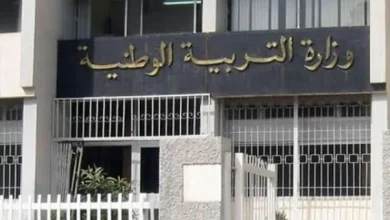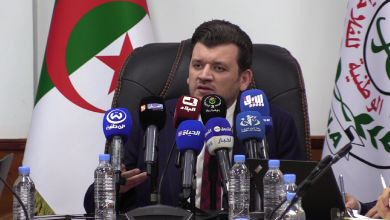A Turkish court has issued a new arrest warrant for the embattled Mayor of Istanbul, Ekrem Imamoglu, on charges of espionage. This latest development adds to the already considerable legal pressure mounting against Imamoglu, who has been embroiled in a series of investigations since March of this year. The new charges stem from an ongoing investigation into alleged espionage and the sale of sensitive information to foreign entities. Imamoglu is already serving a prison sentence, handed down in July, for allegedly insulting and threatening a public prosecutor in Istanbul.
The current investigation centers around the testimony and alleged activities of Huseyin Gun, who is accused of spying and selling classified documents to foreign powers. Gun’s alleged actions have broadened the scope of the investigation, implicating Necati Ozkan, Imamoglu’s campaign manager, and Mardan Yanardag, the editor-in-chief of the opposition Tele1 television channel.
According to the Turkish Public Prosecutor’s office, investigations into Gun’s activities revealed that he allegedly gathered and transmitted sensitive information about Turkey to intelligence officers and individuals believed to be working on behalf of foreign countries. The prosecutor alleges that Gun communicated with these individuals using the encrypted messaging application “Wicker,” and that these communications included photographs taken from a distance of several individuals, including two former Turkish ministers.
The investigation further alleges that Gun utilized the same encrypted application to communicate with Necati Ozkan, Imamoglu’s campaign advisor. Gun allegedly provided Ozkan with instructions related to collecting digital intelligence, analyzing electoral data, and managing approximately 70,000 campaign volunteers. Furthermore, the investigation alleges attempts were made to hack the phones of other campaign advisors to monitor meetings and electoral operations.
The Public Prosecutor’s office contends that the objective of these activities was to raise funds to support Imamoglu’s election campaign through illicit financial gains. Additionally, they allege that Gun leaked confidential voter information and created profiles of voters, with the intention of sharing this information with foreign intelligence agencies. These actions, the prosecutor asserts, constitute espionage.
The investigation also implicates journalist Mardan Yanardag, alleging his involvement in espionage-related activities. He is accused of maintaining consistent contact with Gun and participating in the organization of the press aspects of the 2019 election campaign. It is alleged that Yanardag leveraged leaked voter information and intelligence from foreign agencies, thereby connecting his case to the ongoing investigations against Imamoglu and his team.
In parallel with these developments, prosecutors have announced the detention of 15 other individuals in connection with the case. These individuals include officials and employees from six companies affiliated with the Istanbul Municipality. They are accused of leaking personal information of approximately 4.7 million users of municipal applications and selling this data to foreign countries. Furthermore, they are accused of leaking data on 11 million voters from applications related to housing in the city.
For more information about Economie, check our dedicated section.
Ekrem Imamoglu has vehemently denied the new espionage charges. In a post on the social media platform X, formerly Twitter, Imamoglu stated, “Such slander, lies, and conspiracy are beyond the imagination of the devil… We are facing a shameful and outrageous act that cannot be described in words.” He maintains his innocence and accuses the government of political persecution.
Hundreds of members and officials from the Republican People’s Party (CHP), to which Imamoglu belongs, are facing a range of corruption-related charges. The CHP alleges that these charges are politically motivated and contradict democratic principles. The party claims that the government is using the judiciary to target political opponents and undermine the opposition.
This latest arrest warrant against Imamoglu adds another layer of complexity to the already fraught political landscape in Turkey. Imamoglu, a prominent figure in the opposition, secured a decisive victory in the 2019 Istanbul mayoral election, defeating the candidate from President Erdogan’s AK Party. His victory was seen as a significant blow to Erdogan’s party, which had controlled Istanbul for 25 years. The rerun election, ordered after the initial results were disputed, further solidified Imamoglu’s win and elevated his national profile.
Imamoglu’s political future remains uncertain as he navigates these legal challenges. He is widely considered to be a potential contender for the presidency in future elections, and the ongoing investigations could significantly impact his ability to run and garner support. The accusations of espionage, in particular, are highly damaging and could erode public trust in his leadership.
The Turkish government maintains that the investigations are being conducted in accordance with the rule of law and that there is no political motivation behind the charges. However, critics argue that the government is using the judiciary to silence dissent and suppress political opposition.
The situation is being closely watched by international observers, who have expressed concerns about the erosion of democratic norms and the independence of the judiciary in Turkey. The European Union and other international organizations have called on the Turkish government to ensure fair trials and respect the rights of the opposition. The outcome of these legal proceedings will have significant implications for the future of Turkish politics and the state of democracy in the country. The timing of these charges, ahead of potential future elections, also raises questions about potential political maneuvering. The case highlights the ongoing tensions between the ruling party and the opposition, and the potential for the judicial system to be used as a tool in political battles.



